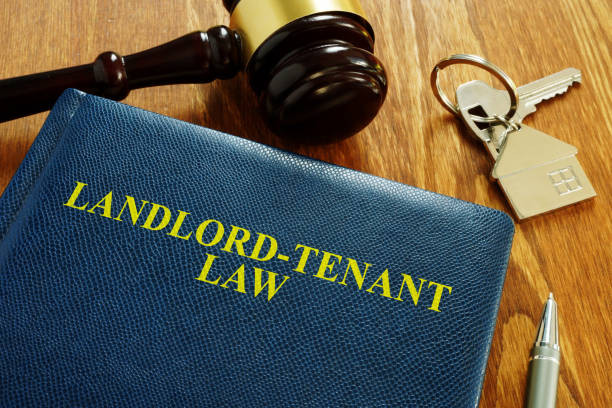A Right Or A Privilege? Dispelling The Nuances Of Landlord/Tenant Law

Each year, millions of legal disputes occur, and a large share of them involve landlord and tenant litigation. These disagreements are complex issues that are essential for landlords to handle carefully. If they make the wrong decision on how to address a situation, the owner's assets can be negatively impacted. However, many people–even landlords–are unaware of the best way to resolve these disagreements. Niv Davidovich, a highly experienced litigator and attorney, and the Managing Partner of Davidovich Stein Law Group, offers his expert opinion on the issue.
The public often assumes that a breach of contract between a landlord and tenant only occurs in residential settings. In reality, litigation can result from any dispute between an owner and a tenant, even relating to commercial and industrial structures. Because of their prevalence, landlords must understand the most logical way to avoid losses while also eliminating the risk posed by a tenant. Niv Davidovich notes that many landlords fail to follow this path because they focus on winning a legal battle instead of focusing on their real goal, which is to make their project financially successful.
"Sometimes landlords are highly experienced entrepreneurs, and in other cases, they are ordinary people with little experience handling a serious disagreement that involves financial responsibility," says Niv Davidovich. "In either case, disputes between an owner and a tenant can occur, and it is very common for landlords to take legal action past the point of taking advantage of other more economically beneficial solutions that are on the table."
According to Niv, taking things all the way to trial, while sometimes necessary, is rarely the most lucrative way of dealing with a landlord-tenant dispute. This is mainly due to the high costs of legal fees and the many months it can take for a trial to conclude, especially in California, where tenants can demand a jury trial for any eviction. Additionally, in places like Los Angeles, where Niv practices, pursuing an eviction has become much more difficult.
Since the pandemic, many residents throughout the US have benefitted from moratoriums that postponed rental payments since most Americans no longer had income sources. These legal authorizations soon became invalid as tenants were increasingly able to return to their workplace or find a new job that would provide them with the income necessary to pay rent. Nonetheless, many landlords are under the mistaken impression that long-past expired COVID restrictions bind their hands.
In Los Angeles specifically, a new issue has mushroomed relating to landlord and tenant disputes. Local activists have opened several agencies to offer free legal representation for tenants facing eviction, based primarily on a political movement in which landowners are painted as oppressors. However, this support for tenants puts landlords in a tough situation. Legal proceedings are very expensive, and if a tenant now can file motions, propound discovery, and demand a jury trial for free, landlords will foot the bill even if they are clearly entitled to payment under the lease.
In light of these complications, Niv frequently assists his clients in crafting settlements that help to avoid a trial, get the tenant out faster, and pay less money out of pocket in the long run (unless, of course, a tenant's requests are too extreme, which case he proceeds to trial frequently). The litigator takes this approach because the judicial system is pitted against landlords despite the economic contributions their assets bring to local areas.
"From the inception of a dispute until a judgment is reached, landlords can pay upwards of $35,000," says Niv. "If you take the emotions out and just look at the math, it can prove illogical to invest in this process because it is risky and tenants can appeal an eviction and overturn the ruling even if you've already won the case. Settlements are an opportunity to control the outcome of the case while ensuring your net out-of-pocket outlay remains the lowest it can be. This way, landlords will save themselves financial and emotional suffering that litigation would've drawn out."
As the housing crisis continues and the cost of living also intensifies, landlords will be more likely to encounter disputes with their tenants. In this climate, litigators like Niv Davidovich will only become more critical for ensuring that landlords resolve these issues without suffering financial losses or jeopardizing their properties.
© Copyright IBTimes 2025. All rights reserved.




















